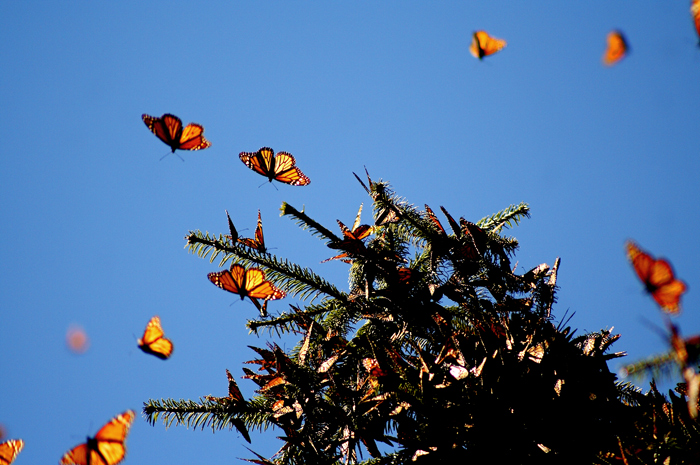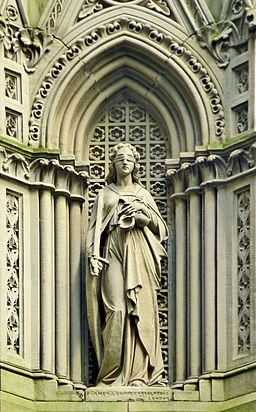Long Live the Monarch
From the 1955 film The Night of the Hunter, Robert Mitchum as a murderous and greedy self-anointed preacher sings “Leaning on the Everlasting Arms”, while Lillian Gish as Rachel Cooper protects the children inside her house from harm.
Before the Spaniards arrived in Mexico, the Aztecs and other indigenous peoples believed Monarch butterflies were returning human spirits. After the Spaniards imposed Catholicism throughout the region, the Native Americans transposed some of their ancient beliefs onto the new religion. In the case of the Monarch butterflies, since their annual migration brought them to their winter home in the mountains of Mexico more or less at the end of October and the beginning of November, it was a simple matter for Native Americans to meld their traditional celebration of the dead and honoring of the return of the butterflies at that time of year with the Christian holidays of All Saints’ Eve (Hallow e’en, or evening) on October 31st, All Saints’ Day on November 1st, and All Souls’ Day on November 2nd.

Overwintering Monarch butterflies in November 2005. Photo by Samuel from Toluca, Mexico.
The ending of the 2010 version of True Grit, a film by Joel and Ethan Coen, with Iris DeMent singing “Leaning on the Everlasting Arms”.
It is more important than ever, therefore, for individuals to do everything they can to assure the continued survival of Monarch butterflies, rather than relying on governmental entities to take the lead. It’s not hard; the butterflies don’t ask for much. Leave some tall weeds standing at the edge of a property rather than mowing absolutely everything down to half inch high grass. Among those tall weeds, plant or encourage some milkweeds as fodder for the caterpillars, and some wildflowers as nectar sources for the adult butterflies. Stop using pesticides and herbicides, at least the general purpose ones that kill all insects or all vegetation. Pay attention, be observant and respectful, and in the end enjoy what you have helped along in a way you could not possibly enjoy yet more grass or asphalt. The spirits are watching.
― Vita 

